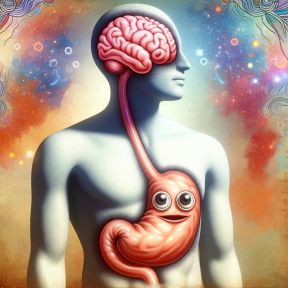Memory Loss
For most people, it would be hard to imagine a life in which the mind did not routinely discard once-remembered details—from temporarily memorized facts and figures to the characteristics of people and places one hasn’t thought of in years. A normal degree of forgetting is a core element of memory, allowing people to dispense with information for which they no longer have much use.
Of course, forgetting causes problems, too. Minor failures to remember can be inconvenient at any age, and they may become more frequent and troublesome later in life. Scientists have shown that declines in certain types of memory ability are a typical part of aging and do not necessarily reflect the development of a medical condition such as Alzheimer’s disease. Experts have proposed a variety of tactics for staving off memory decline and managing typical levels of memory loss.
Forgetting can be frustrating when one notices it, but much of what people forget escapes memory quietly. Experts say it's a feature, not a bug, of the way memory works.
Many details and experiences are more relevant to our future than others, and remembering everything would be likely inefficient. Forgetting may actually be helpful for remembering in the sense that less-useful details that are forgotten (such as an old password or outdated set of directions) won’t interfere with the retrieval of useful ones. And forgetting unpleasant or painful memories, when one is able to do so, can make one feel better about past experiences and reduce the burden of negative ones.
Information may be forgotten because one wasn’t paying close enough attention initially or has not reinforced the memory of the information by retrieving it. A more recently acquired memory may interfere with the retrieval of an earlier one, such as when one learns the names of more than one person in succession. Stress, lack of sleep, and certain behaviors, such as excessive alcohol consumption, can also temporarily impair memory (causing a “blackout,” in the case of drinking.)
Yes. While chronic forgetfulness can be a sign of a medical condition, simply forgetting the name of someone you’ve just met or small memory failures related to tasks you probably weren’t paying much attention to (“Did I lock the car?”) are not necessarily cause for concern. They may be still inconvenient—and precautions such as paying deliberate attention in the moment to what you tend to forget and repeating aloud the thing to be remembered could be helpful.
Warning signs of a potential memory problem include problems remembering well-known and often-used information (such as the way to and from a regular destination), difficulty handling important tasks due to memory, or increased forgetfulness that is noticeable to others. In such cases it is worth talking about memory-related concerns with a health-care provider (and it may ultimately be helpful to see a memory expert.)
It’s that experience when someone cannot immediately recall a word or phrase (such as someone’s name) but feels as if they are very close to recalling it (“It’s on the tip of my tongue!”). When in a tip-of-the-tongue state, a person might sense—correctly or not—that they remember certain characteristics of a word, such as its first letter, without being able to bring the information into full awareness. This experience may become more frequent with age. The feeling of the tip-of-the-tongue state may serve to motivate someone to keep searching their memory.
It is well known that some forms of memory ability tend to become less sharp as the decades of one’s life pass by. Just like other parts of the body, the brain changes with age, with accompanying differences in the ability to recall information. But not everyone experiences such declines to the same degree as they get older, and some forms of memory—such as the memory for familiar physical tasks—seem largely unhindered by age.
To an extent, yes. Changes in the ability to remember are normal, even in the absence of dementia or another condition, and memory loss is a common concern among older adults. Declines in certain types of memory (such as working memory and episodic memory) mean that a person might occasionally forget the word they had intended to say or where they left a frequently used object. Other forms of memory, including semantic memory (knowledge about the world) and procedural memory, seem to be less affected by normal aging.
Memory ability, at least for some kinds of memory (such as working memory), can begin to gradually decline as early as one’s twenties or thirties, with downward trends extending into later life. Research indicates that episodic memory ability (memory for experiences) tends to decrease after age 60. Yet these are averages; for some individuals, memory is preserved to a greater extent and for longer.
Over time, degradation in the brain regions that support memory contributes to memory difficulties. Among the changes that occur in memory-related areas such as parts of the medial temporal lobe and prefrontal cortex are decreases in grey matter volume and in the quality of white matter, which is essential for communication between neurons. Scientists have also observed relevant differences in physiology (such as in the dopamine system) and in regional activation during memory tasks.
Can memory be protected as people grow older? While a person may not be able to prevent decreases in memory ability entirely, experts have studied various steps one can take to increase one’s odds of maintaining a sharp memory into older age. There are also techniques for working around common memory issues if they arise.
Adopting aspects of a generally health-promoting lifestyle—such as a healthy diet, routine physical activity, and plenty of sleep—may help maintain memory as you age. So might playing cognitively challenging games, such as chess, cards, and crossword puzzles, or exercising your mind in other ways.
Reducing stress and getting enough sleep could be helpful. Other ways to compensate for forgetfulness include organizing objects (such as car keys) so that their locations are always the same, making an extra effort to concentrate when taking in information to be remembered, minimizing distractions, and using simple memory aids such as planners, calendars, written lists, and reminder notes. In some cases, it may be worth considering medications to enhance memory.














